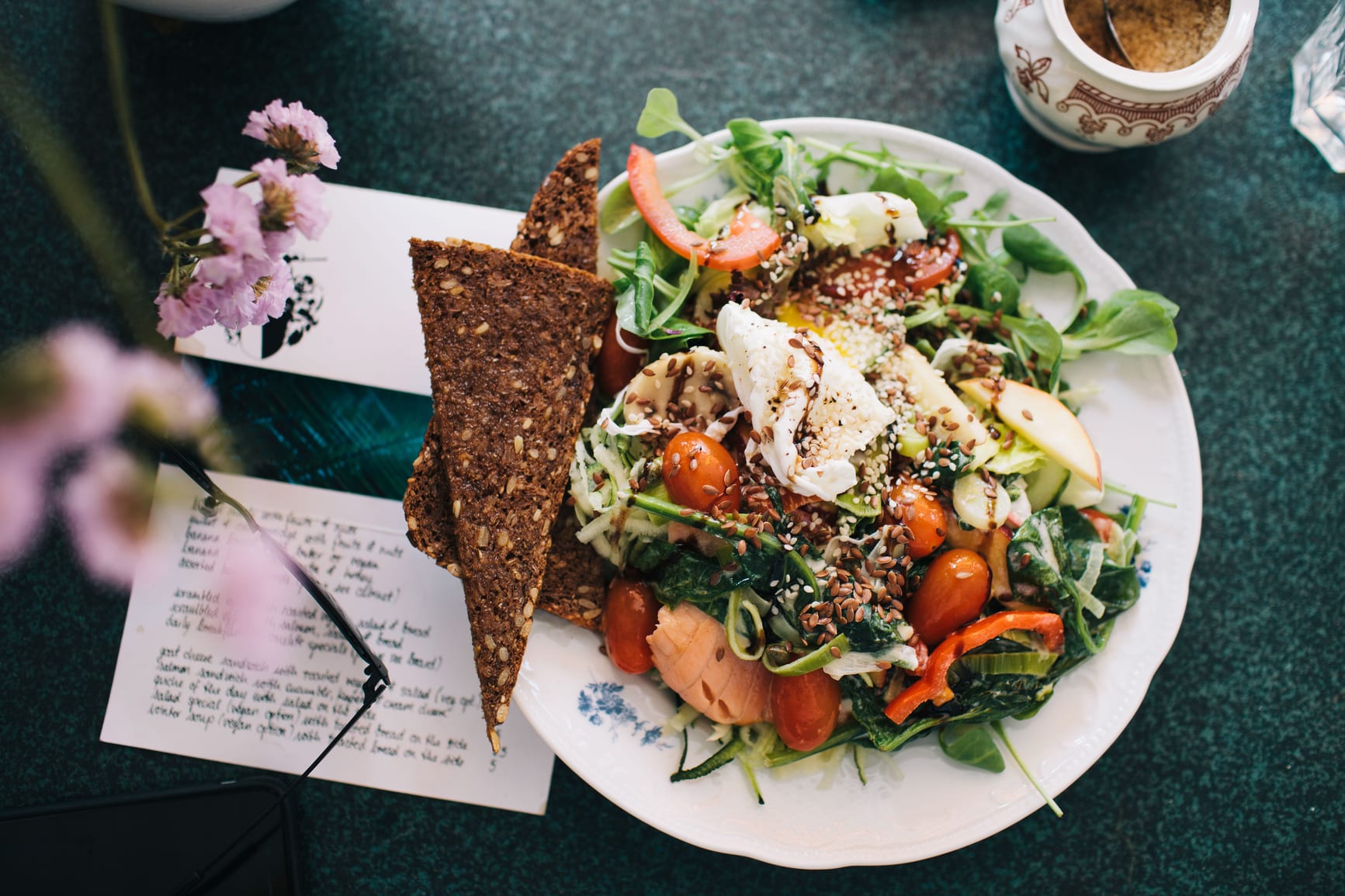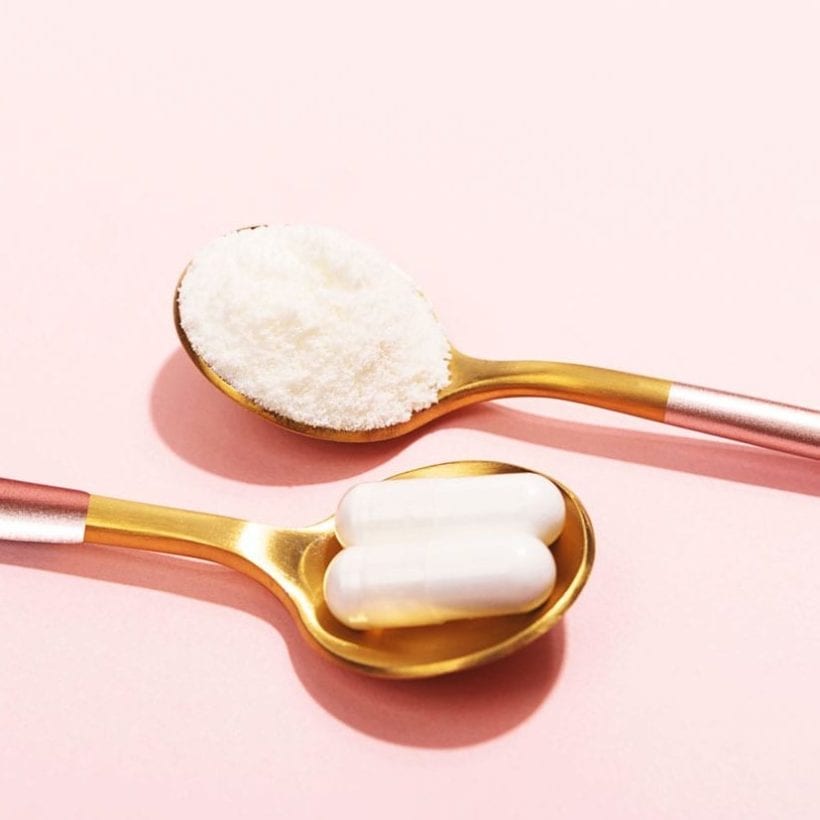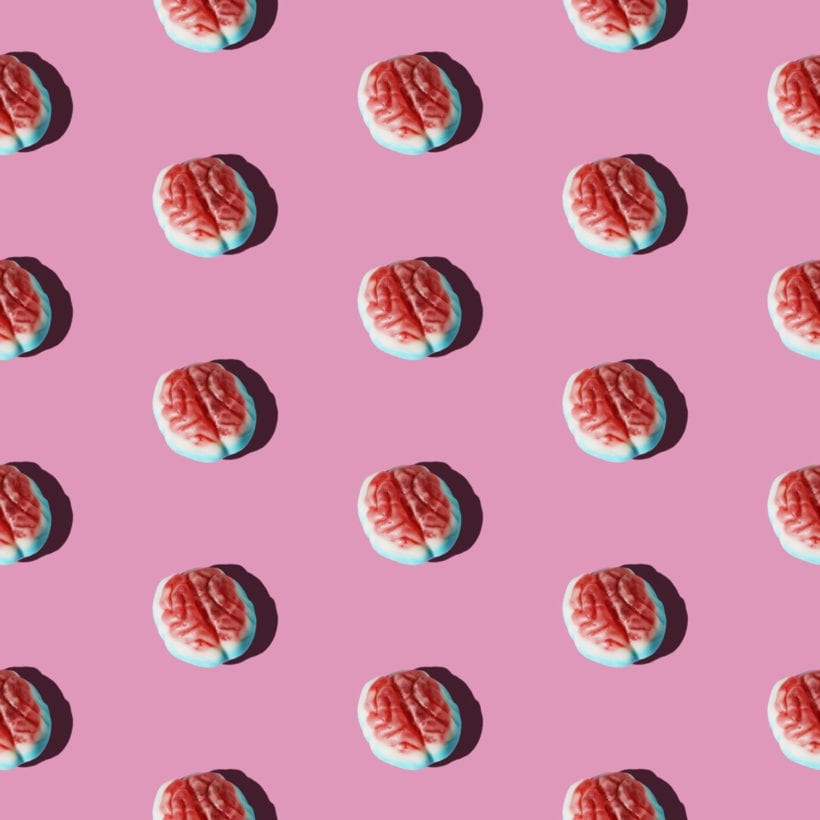First things first: all bodies of all sizes are beautiful. And you should never harbor guilt or shame when it comes to your diet or lifestyle. However, suppose a few weeks (or months!) of eating more sugar or drinking more booze than you typically consume has you feeling lethargic, suffering from breakouts or feeling otherwise-blah. In that case, a healthy eating challenge could help you find a better balance. But a quick internet search will reveal endless options, from the Whole30 program to the Noom app, all promising to curve cravings, improve your gut and, of course, change your life. How do you know what’s right for you? Here, we spoke with celebrity chef, certified nutritionist and reiki master Serena Po to analyze popular regimens:
Whole30
What it is: With a cult following, millions of people have tried The Whole30 program — myself included! For 30 days (hence the name), you are tasked with cutting out refined or added sugars, alcohol, grains, legumes and dairy. What can you eat? A colorful plate of vegetables, organic or farm-raised meats, potatoes, and fruit. After the month is up, you gradually introduce these foods back into your meal plans, helping you to identify sensitives or allergens. During my first round of Whole30 in 2015, I dropped nine pounds and 11 inches, but more importantly, I discovered I was sensitive to dairy, and I no longer consume it.
Cost: There are many Whole30 books, but all of the information needed to do Whole30 is available online, for free.
Who might benefit from it: Poon says Whole30 can be a helpful program for people who have food habits they want to release from their lives, primarily since it focuses on eliminating inflammatory foods, common allergens and foods that can be addictive.
What goals it can help you meet: In addition to eliminating poor food choices that might serve your body — like sugar or processed foods — it can also provide a mental shift. As Poon says, Whole30 isn’t focused on weight loss, even though you may end up losing some. “Many people who take on the Whole30 report feeling better and enjoying the results from the program so much that they carry some of the practices with them after completing the thirty days,” she adds.
What benefits it provides: Poon says many people can reset their eating habits, helping them to make smarter choices beyond the month-long challenge. “Whole30’s focus on whole foods is ideal for creating a sustainable, long term eating plan. There is also a global movement around Whole30, which is helpful for some people because it can make shifting eating habits a social or community-based activity,” she shares.
What drawbacks it may have: Well, it’s not going to be super-duper easy to cut out your favorite groups completely, and many people report headaches during the first week as they go through sugar withdrawal. And while it’s probably okay to not have entire food groups — like dairy or grains — in the short-term, Poon doesn’t recommend it indefinitely without checking with your doctor or nutritionist. And due to the restrictive nature of Whole30, it’s not a program you can do 24/7, since hey, you might want to have a glass of wine sometimes. Instead, many people who enjoy it adopt an 80/20 rule after 30 days.
Dry January

What it is: After Thanksgiving wine, holiday cocktails and New Year’s champagne — you may feel like you’ve hit your limit with booze intake. That’s why many people adopt a ‘Dry January’ practice where they don’t consume alcohol for the first month of the year. It’s a straightforward challenge, but of course, it can be challenging if you’re used to having drinks with dinner, or you are meeting up with friends for a social outing, and they have round.
Cost: Free!
Who might benefit from it: Poon says Dry January is great for everyone.
What goals it can help you meet: Though you may experience a little weight loss when you’re sober since alcohol contains a high amount of sugar, Poon says there are so many benefits to taking a break from drinking that go beyond the scale. “When people spend a month without alcohol, they often report benefits such as clearer skin, more mental clarity, and better sleep,” she shares.
What benefits it provides: Poon says it’s really nice to give your body a break from alcohol regularly, and especially after the holidays when indulgence is the norm. “Dry January supports your body’s natural detoxification system by giving your liver a break from processing alcohol,” she explains.
What drawbacks it has: Since your body doesn’t need alcohol to survive, you probably won’t experience any adverse health reactions from Dry January. However, it can be challenging to maintain a busy social calendar when everyone is having drinks, but you aren’t. This year may provide a silver lining though since the pandemic doesn’t allow group gatherings. If you find yourself in a situation where you are tempted to give in, Poon suggests finding something else to consume in its place. A warm cup of herbal tea, sparkling mocktail or CBD tincture can nicely replace a drink.
FASTer Way to Fat Loss
What it is: Certified nutrition, strength and conditioning coach and personal trainer Amanda Tress created FASTer Way to Fat Loss, a program that focuses on intermittent fasting, nutrition and fitness. Through a guided six-week course, you will be paired with a certified coach, provided with daily 30-minute workout videos and a meal plan for carnivores or vegans. Throughout the period, you’ll learn about carb cycling and macro tracking, too.
Cost: $199
Who will benefit from it: Poon says this diet can be useful for very detail-oriented people and like to track their nutrition intake. Plus, if you need a little more hand-holding or you want to be told exactly what to eat, how to work out and how to improve your health, having a dedicated coach could be a game-changer.
What goals it can help you meet: Poon says Faster Way to Weight Loss can be useful for losing weight. “With a focus on nutrition through intermittent fasting, carb cycling and macro tracking, the main benefit of this diet is that you are strategically reducing overall calorie intake,” she explains.
What benefits it provides: One of the biggest perks of this program is that it requires you to track every single thing you eat. This provides your coach with a glimpse of how well you’re following the program, but more importantly, it gives you a clear view of your food choices. “Tracking your nutrition intake each day can give you a solid understanding of your unique eating habits and rhythms,” Poon explains. Armed with this information, you can make sustainable changes and better pinpoint your cravings, weaknesses, and so on.
What drawbacks it has: Poon says for some people tracking with this much detail can feel tedious, and it may be difficult to keep up in the long run. “It definitely depends on your personality, but sometimes focusing on what you are eating this much can feel like a chore,” she shares.
Keto
What it is: You’ve likely heard of the ketogenic or ‘keto’ diet, which has gained steam over the past several years from fitness enthusiasts. It focuses on a very low carb and very high protein and fat diet that forces you to go into a ketogenic state. This means your body receives its energy from fat instead of carbs, which is typically its primary resource.
Cost: Free, but there are plenty of books.
Who will benefit from it: Poon says the ketogenic diet is proven to support some children who have epilepsy, and there is some evidence that a keto diet can help people with diabetes. “For the general population, this diet usually aids in quick weight loss,” she shares. “Athletes often enjoy a keto diet because they can decrease their calorie intake without jeopardizing athletic performance.”
What goals it can help you meet: If you have an event coming up, in say, February or March, keto could be a quick way to drop some weight. Or, if you’re battling with overeating, it could also help you cut back on your portions. “Proteins and fats help people feel full and can be a helpful way to decrease calories without feeling overly restricted,” Poon shares.
What benefits it provides: A keto diet is helpful for quick weight loss since it can also support lower blood sugar and decrease the symptoms of metabolic syndrome, Poon shares. After going through the ‘keto flu’ for a few days, as your body detoxes from sugar and carbs, many people report feeling lighter and having more mental clarity.
What drawbacks it has: Though, yes, it may ‘work,’ Poon says the long-term effects of the keto diet are unknown, which worries most medical professionals and nutrition experts. “Many people end up eating a lot of meat and fewer vegetables and fruits on a ketogenic diet, which is something to be wary of,” she shares. “High meat and fat diets have the potential to cause increased cholesterol, inflammation and vitamin deficiencies.”
Noom
What it is: Noom is an app that focuses on improving the relationship we have with food and our body. It takes a more behavioral approach to lose weight since it’s designed to track your choices, your feelings, and your triggers, so you can gain better control and build confidence. You are given a coach who helps you set your goals, keep you accountable, and be there to answer questions. You can think of it as a form of therapy, but also with food recommendations, app alerts to drink more water, and so on.
Cost: $59/month, with a 14-day free trial.
Who the diet will benefit: Poon says Noom is excellent for people who want to learn about their behavioral tendencies and food choices. “Noom is thoughtfully set up in a way that lends itself to long-term habit change,” she says.
What goals it can help meet: While Poon says Noom is essentially a tool for weight loss, she thinks the most valuable component of this program is that it educates people about their food choices. You can log when you are feeling tempted to have a drink when you’re trying to cut back on alcohol, and you can log how dairy makes you feel so that you can keep a record of your routine and decisions.
What benefits it provides: Noom is a wonderful educational tool with access to a community of people and experts, and it also creates a tailored view of your personal food behaviors — all of which Poon says is the right formula for lasting change.
What drawbacks it has: If you like to have specific meal plans to follow, Noom may not be for you. “Noom offers a lot of great resources, but you’re ultimately on your own for planning,” Poon warns.








